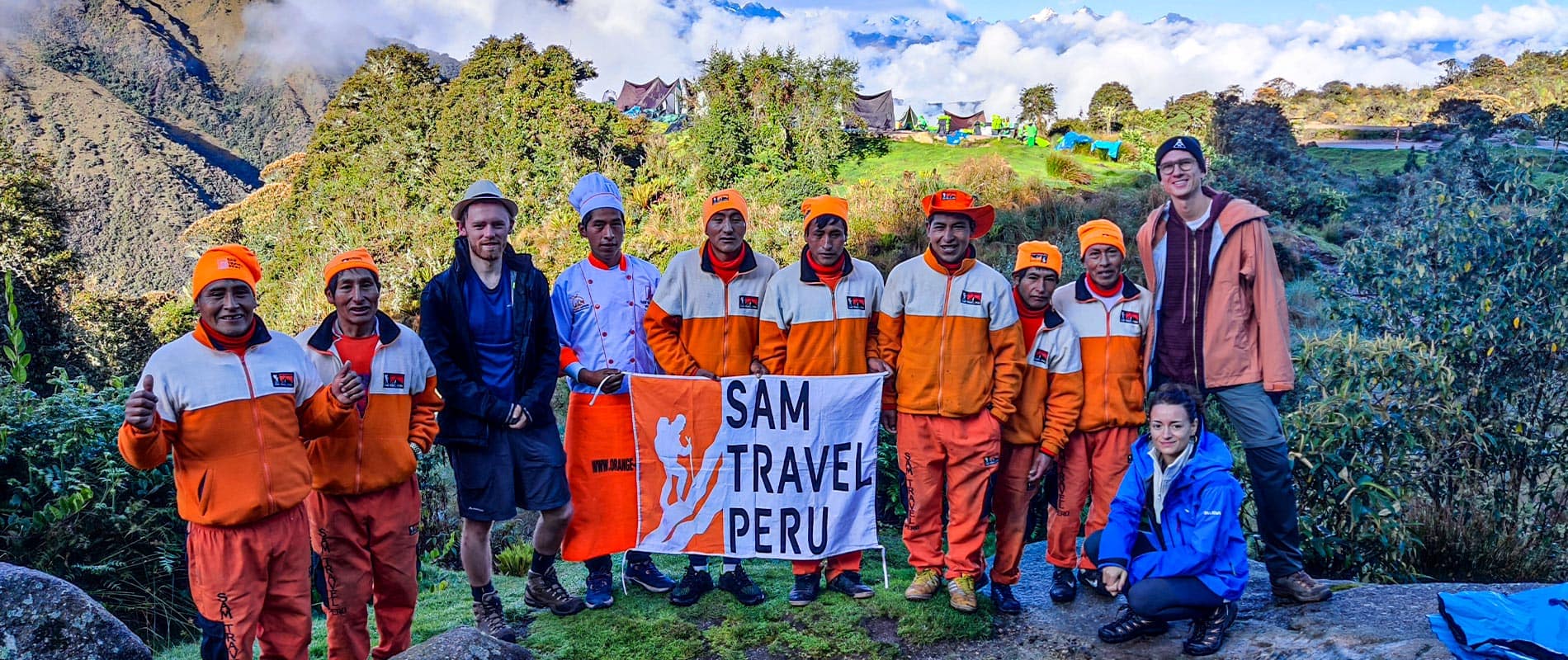Considered one of the best hikes in the world, the Inca Trail awaits you in Peru. Starting in Cusco, the trail is 4 days of hiking through the Andes Mountains passing snowcapped peaks, cloud forests, a plethora of wildlife and Inca ruins all ending in the Inca Citadel of Machu Picchu. Make new friendships, take amazing photos all on the challenging but rewarding Inca Trail.
History
The Inca Trail to Machu Picchu is part of an extensive Inca system of trails of more than 23,000 kilometers that integrated the Inca Empire of Tahuantinsuyo that covered big part of Latin America: from Colombia, the west of Brazil, Ecuador, Peru and Bolivia, to the center of Chile and the north of Argentina. These trials were mainly on the coast or in the mountains, but sometimes even reached the tropical edge of the jungle. The ancient trails varied in size but were generally narrow. In the mountainous regions of the Andes, trails rarely exceeded 1m in width. The trails, particularly in the mountainous region, are steep, stepped and high.
When to go?
The Peruvian high Andes have 2 distinct seasons, the Wet Season and the Dry Season. The Wet Season covers October to April, expect rain and cloud cover most days, the upside being that there will be less people and more time to take your wonderful photos. The Dry Season is from May to September, the skies will be clearer but there will be large crowds at all the major places in Machu Picchu. The trail is closed in the month of February for maintenance, so no Inca Trails.
What you will see on the 4-Day Inca Trail to Machu Picchu?
1. Patallacta (Llactapata)
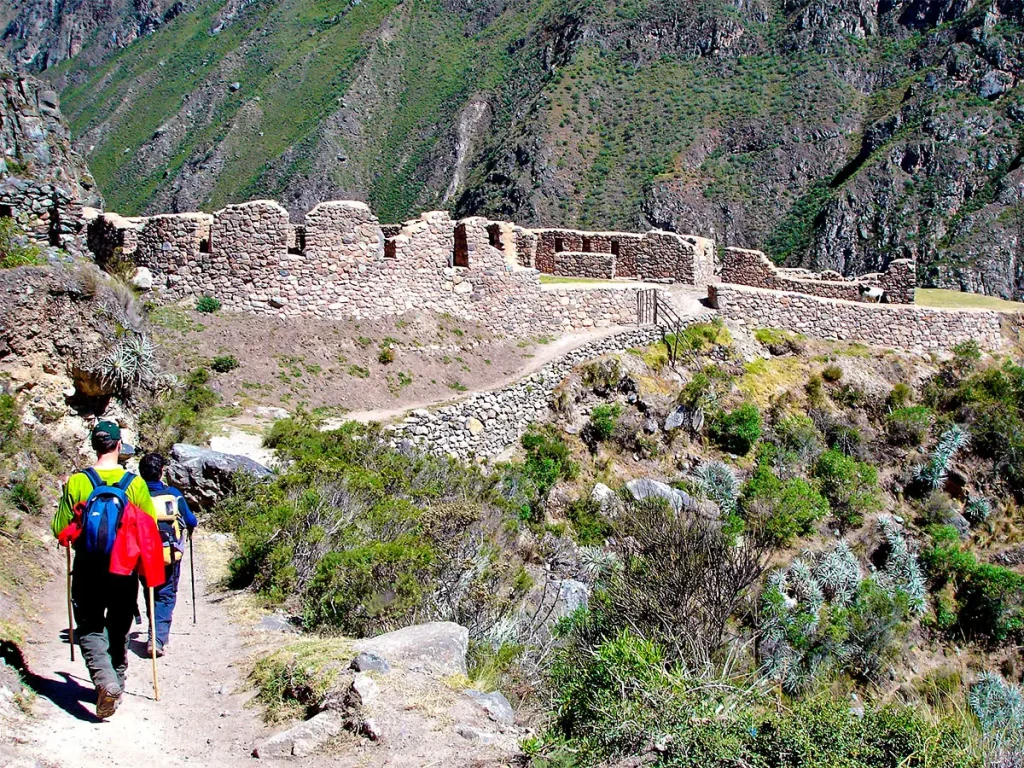
Llactapata means “high town” or “town on the hill” in Quechua. The complex sits at an altitude of 9,318 feet (2,840 meters) and contains massive terraces and hundreds of housing structures. It is believed this was a common stopping point for Incas traveling from Cusco to Machu Picchu. From your vantage point across the valley, appreciate the site’s beauty and expanse.
2. Runkurakay Ruins
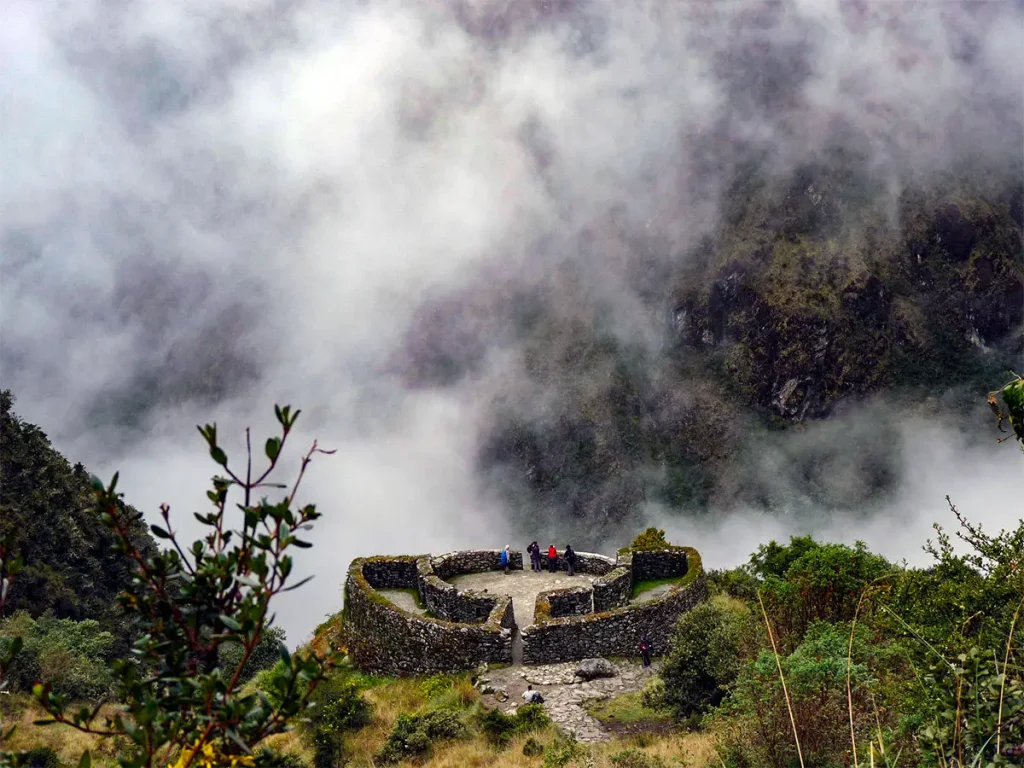
These ruins are a small circular complex, a design not common in Inca architecture. Experts believe this site was a tambo, most likely served as an inn. Runkurakay was primarily a resting, refueling and relay station for messengers. Refueling stations like this were vital for maintaining communication across the Inca Empire. Messengers were specialized runners who dashed along Inca roads, carrying important messages.
3. Sayacmarca
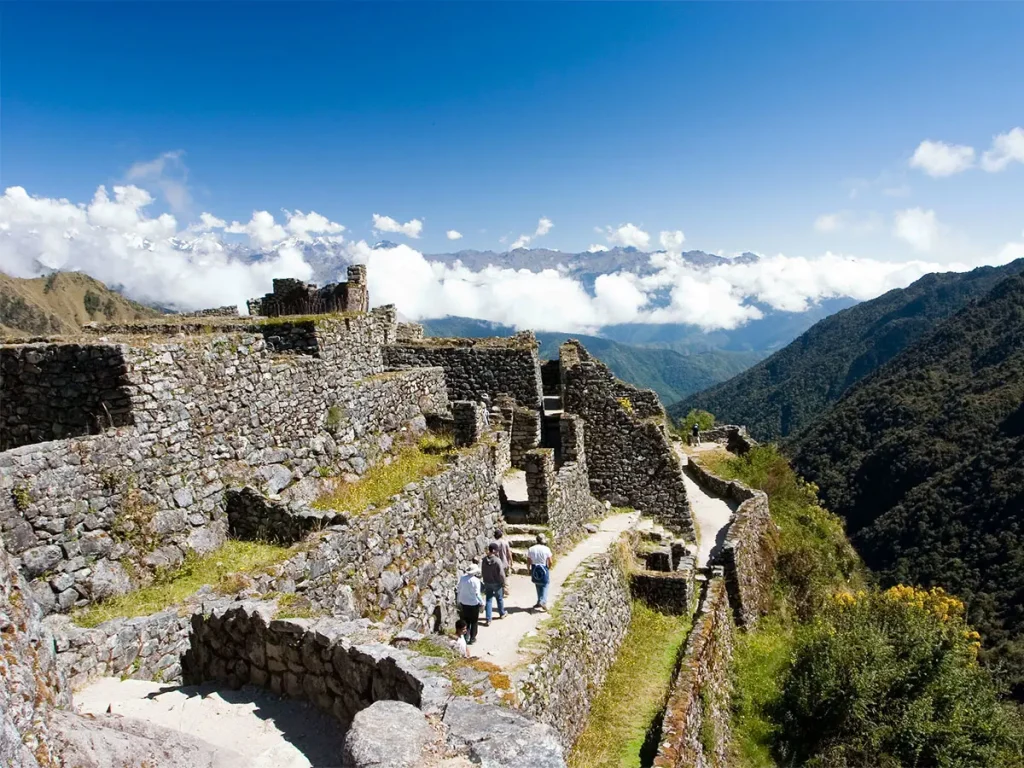
Known as the “Inaccessible Town,” this site is barricaded on three sides by steep drop-offs. No one is sure how the Incas used this site, but it was originally built by the Colla civilization. Sayacmarca sits on the edge of a cliff, giving visitors a panoramic view of the scenic Aobamba Valley. The site is divided into two main parts: the Sun Temple and the residential section. The Incas improved upon the Colla construction by building an elaborate water canal to supply the temple and houses with water.
4. Phuyupatamarca
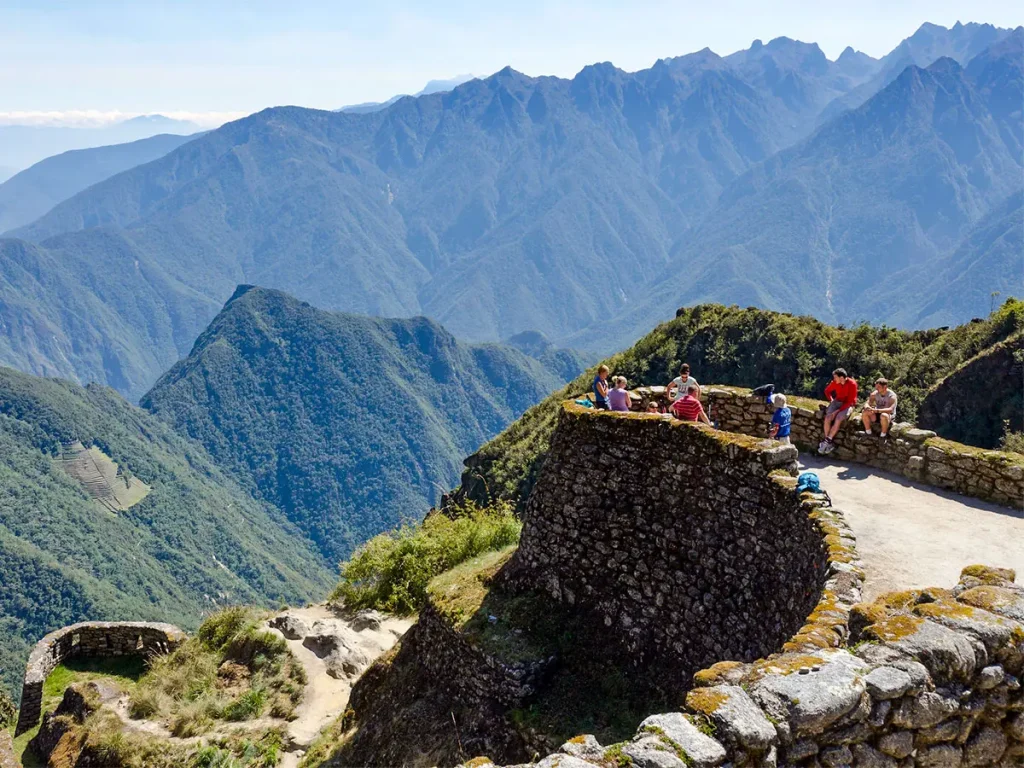
These ruins cling to a ravine overlooking the Urubamba Valley, surrounded by large and lush terraces. The site is often half covered in a mist that rises from the forests below, creating the impression that it is floating on top of the clouds. This mystical place is full of ceremonial baths, plaza, buildings, and bridges.
5. Wiñay Wayna
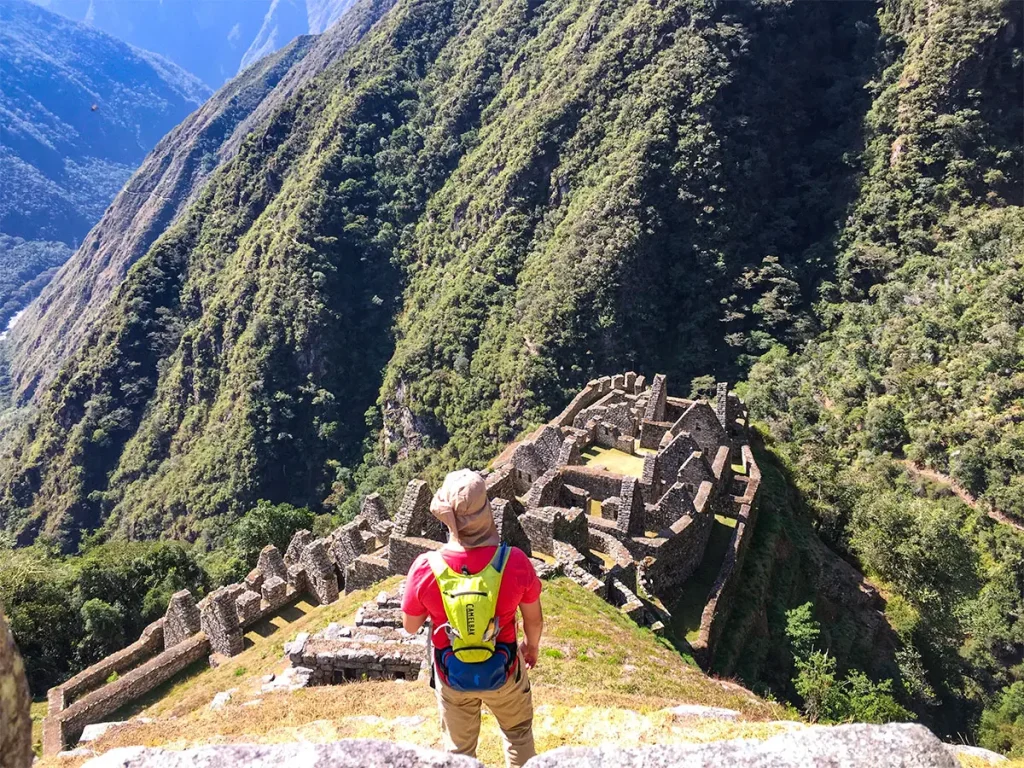
On the last day of the trail, arrive at Wiñay Wayna archeological site. Built on the side of a mountain, the terracing and the buildings are an impressive sight indeed. The purpose of the ruin is not known but there are several theories that your guide will explain.
6. Sun Gate (Inti Punku)
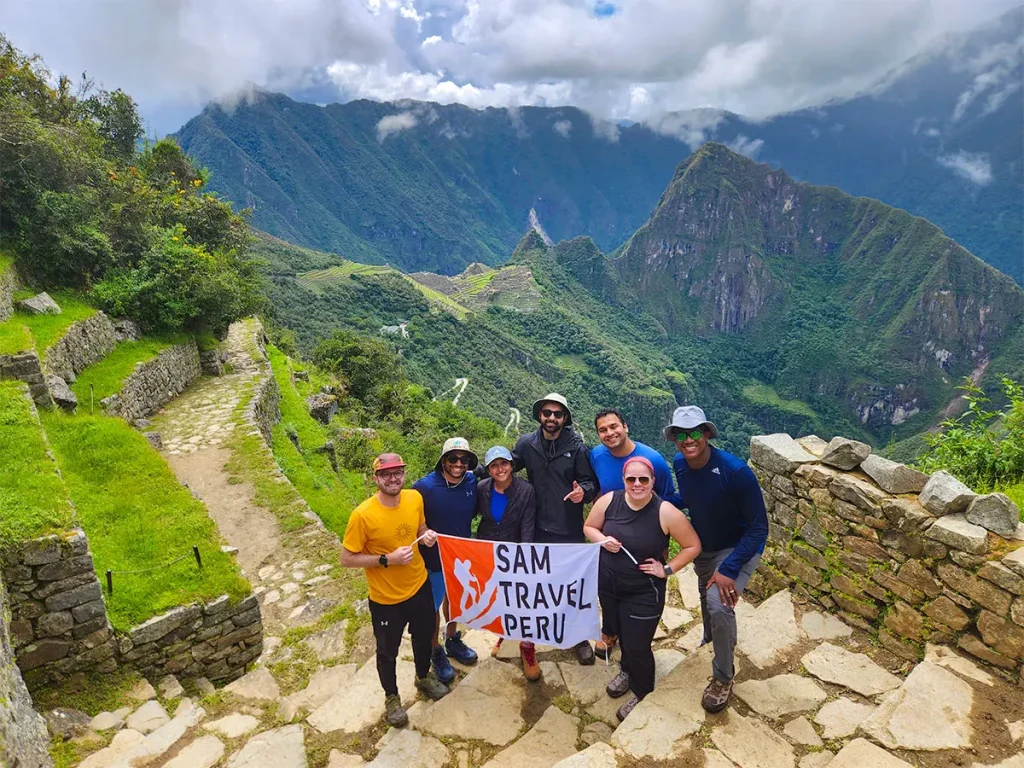
After Winay Wayna walk for around an hour to the gateway to Machu Picchu, the Sun Gate or Inti Punku as it is known. The views from the gate are spectacular, seeing Machu Picchu, Huayna Picchu, the Vilcanota river and the town of Aguas Calientes.
7. Machu Picchu
And last but certainly not least is Machu Picchu. On your fourth and final day on the Inca Trail reach the magnificent Machu Picchu. Words cannot express the euphoria you will experience at the sight of this Inca city.
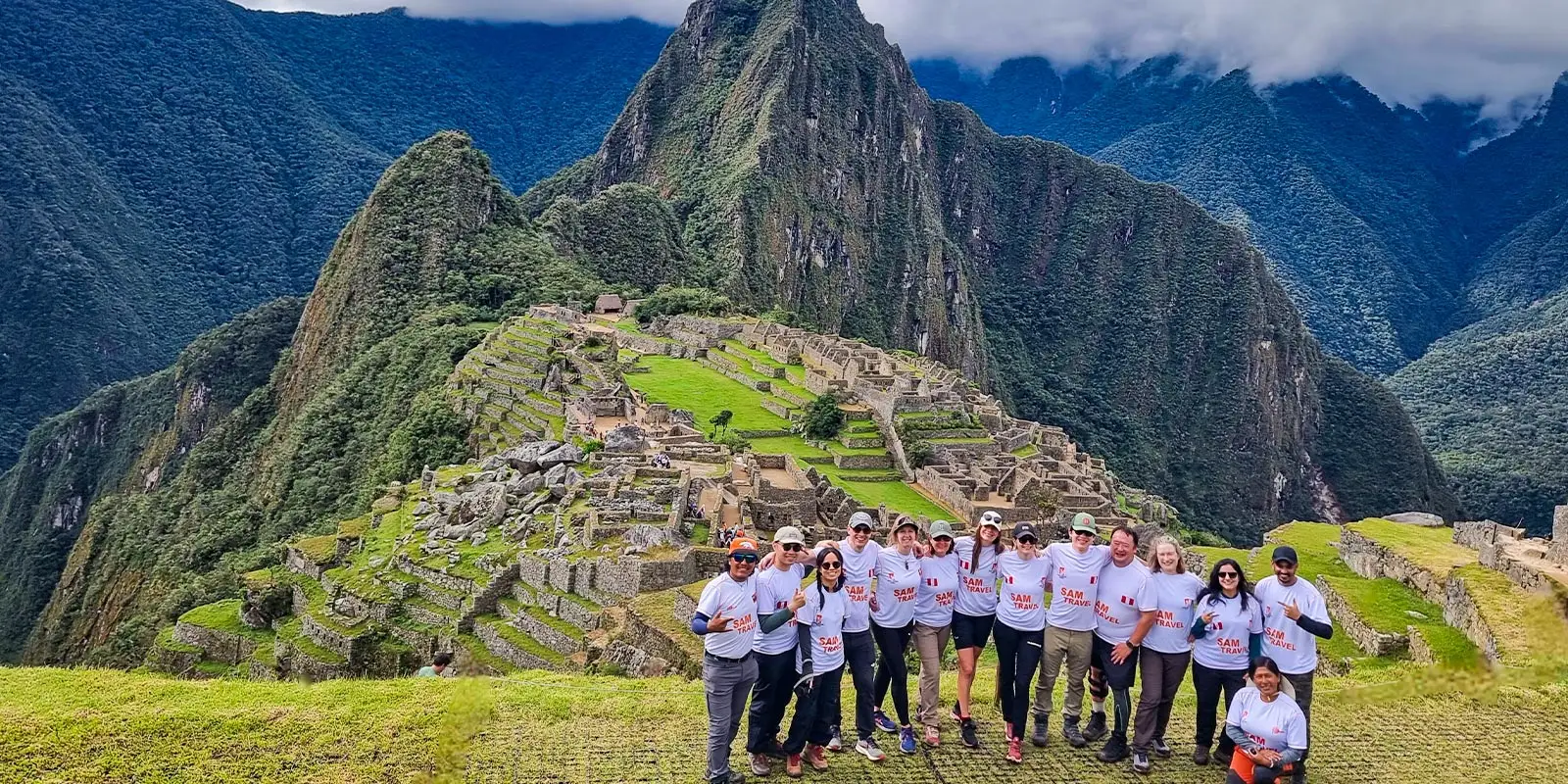
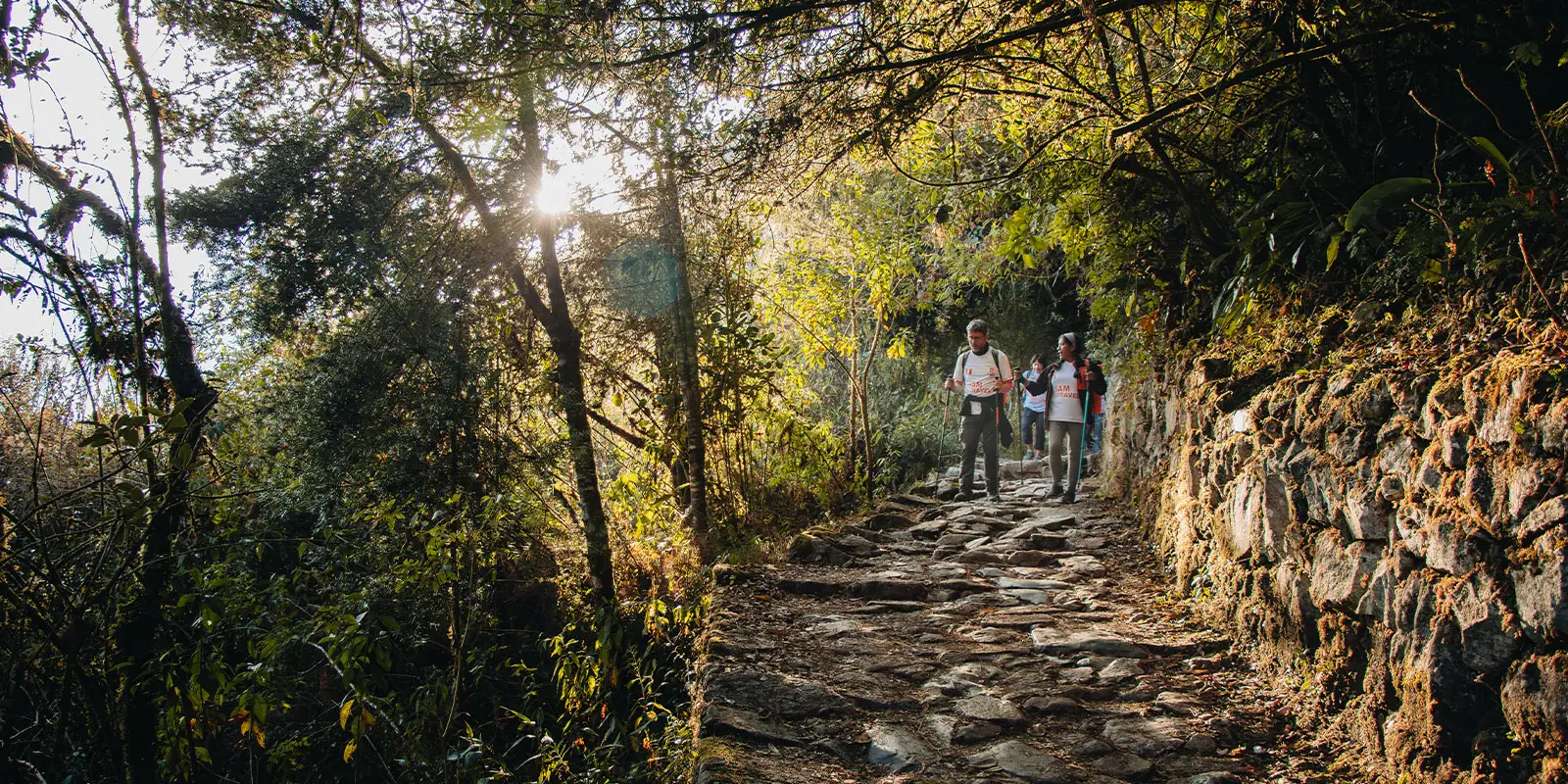
Classic Inca Trail to Machu Picchu 4 days
Inca Trail 4 days to Machu Picchu – One of the World’s Top 10 Hikes The 4 day Inca Trail Hike is famous for being one of the world’s best hikes, discover the pathways of the Inca and be a ....
Ticket Guide.
Inca Trail Tickets
Tickets to Machu Picchu are limited and must be purchased in advance. During the peak season from May to November it is a must if you plan to do the Inca Trail, you will need to book and pay for your Inca Trail up to 6 months in advance as there are only 500 entrances a day to hike the Inca Trail, this includes porters, guides and cooks. If you plan to climb either Huayna Picchu or Machu Picchu Mountain you must book these tickets early as the government of Peru only releases 400 tickets a day and these sell out quickly.
Times
- An entry ticket to Machu Picchu is valid for 4 hours, so you have 4 hours in the site.
- An entry with a Huayna Picchu ticket gives you 6 hours to go on a Machu Picchu tour and do the hike.
- An entry with Machu Picchu Mountain ticket gives you 7 hours to take a guided tour and do the hike. This hike is longer than Huayna Picchu hence why you have more time in Machu Picchu.
Walking Circuits
Walking circuits around Machu Picchu help control foot traffic.
Route 3 is an alternative walking route so visitors with hiking permits can do Huayna Picchu or Machu Picchu Mountain. You will do route 3 when finishing the Inca Trail. If you wish to do either Routes 1 or 2 you will need to buy a new entrance ticket and hire a guide.
Bus, Train and Transfer
After you have finished your Inca Trail hike and your guided tour at Machu Picchu you will need to get back to Cusco. Firstly, from Machu Picchu take the bus down the zigzag road to the town of Aguas Calientes. This charming town is a great place to have lunch with many delicious restaurants from which to choose. Later take the train from Aguas Calientes to Ollantaytambo. Your tour package will include the bus, train and transfer. You have options at to what train you choose to return, tourist class or luxury class, luxury being at an extra cost. On arrival into Ollantaytambo transfer back to Cusco and arrive into Cusco early evening.
FAQs to Inca Trail to Machu Picchu
Packing List
On any trekking holiday there are essential items that you will need to take with you for a comfortable and rewarding journey.
What to put in your DUFFEL BAG?
- 2 t-shirts
- 2 hiking pants at least
- 4 sets of undergarments
- 3 sets of hiking socks
- Fleece/ Thermals
- Warm clothes, down jacket — 2nd campsite temp around 3º C
- Waterproof gloves (even if they are ski gloves, take them)
- Comfortable shoes for camp
- Quick dry towel. We provide small ones; you might prefer something larger
- Small bottle of soap: we provide warm water each day to wash
- Battery Charger: No electricity along the trek
- Large plastic bags will be provided at the office to line your duffel
- Sleeping bag: It has to be at least -15ºC – This can be rented from us for $20 USD
What to put in you DAY PACK?
- Passport or Identification (you will not be allowed to enter the Inca Trail without this)
- Water: Please supply your own water until the first lunch spot, then we will provide you with cold boiled water at every meal time. Please bring your canteens.
- Sun hat and sunglasses
- Sunscreen
- Insect repellent
- Headlamp
- Wool hat and gloves
- Wet Weather clothes
- Fleece or warm layer
- Snacks like chocolate bars, cereal bars or any dry fruits
- Personal First Aid kit and personal medications
- Camera
- Hand sanitizer
- Toilet paper and small plastic bag for waste
- Valuables
- Headlamp
Travel Tips to Inca Trail to Machu Picchu
Advanced Booking Is a Must
It’s very important to buy your tickets for the Inca Trail trek in advance. Early planning does always not guarantee a spot, but greatly increases your chance of securing the trekking dates you want. During high season, from April through October, permits can sell out 6 months beforehand.
Before the Trek, Adjust to the Altitude
We recommend spending a few days in Cusco before your trek begins to give your body plenty of time to adjust to the high-altitude region. Cusco is a city that resides at 11,120 ft (2,400 m) above sea level. The highest mountain pass along the Inca Trail is at a soaring 13,830 ft (4,214 m).
Tips for your tour staff
The guides, porters and chefs on the Inca Trail work very hard to give you the best Inca Trail experience. They are paid for the work but if you feel you have had a good experience it is your choice to whether you tip or not. A general guide for tipping is $50 to $70 per person, which will include all the Inca Trail staff.
If you love adventure and a challenge the Inca Trail is certainly for you. Finish at the magnificent Inca Citadel of Machu Picchu is your reward for a job well done. Don’t miss out on this extraordinary hike in the middle of the Peruvian Andes.
